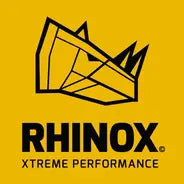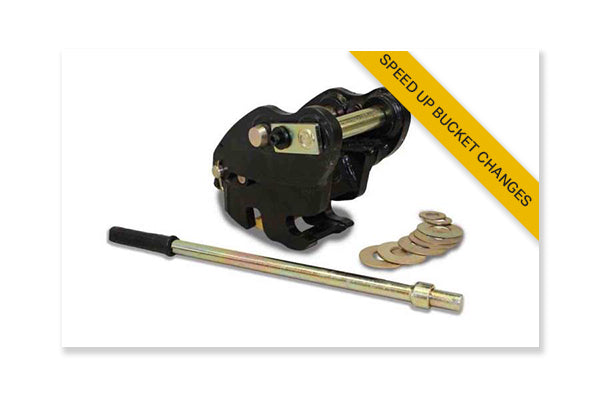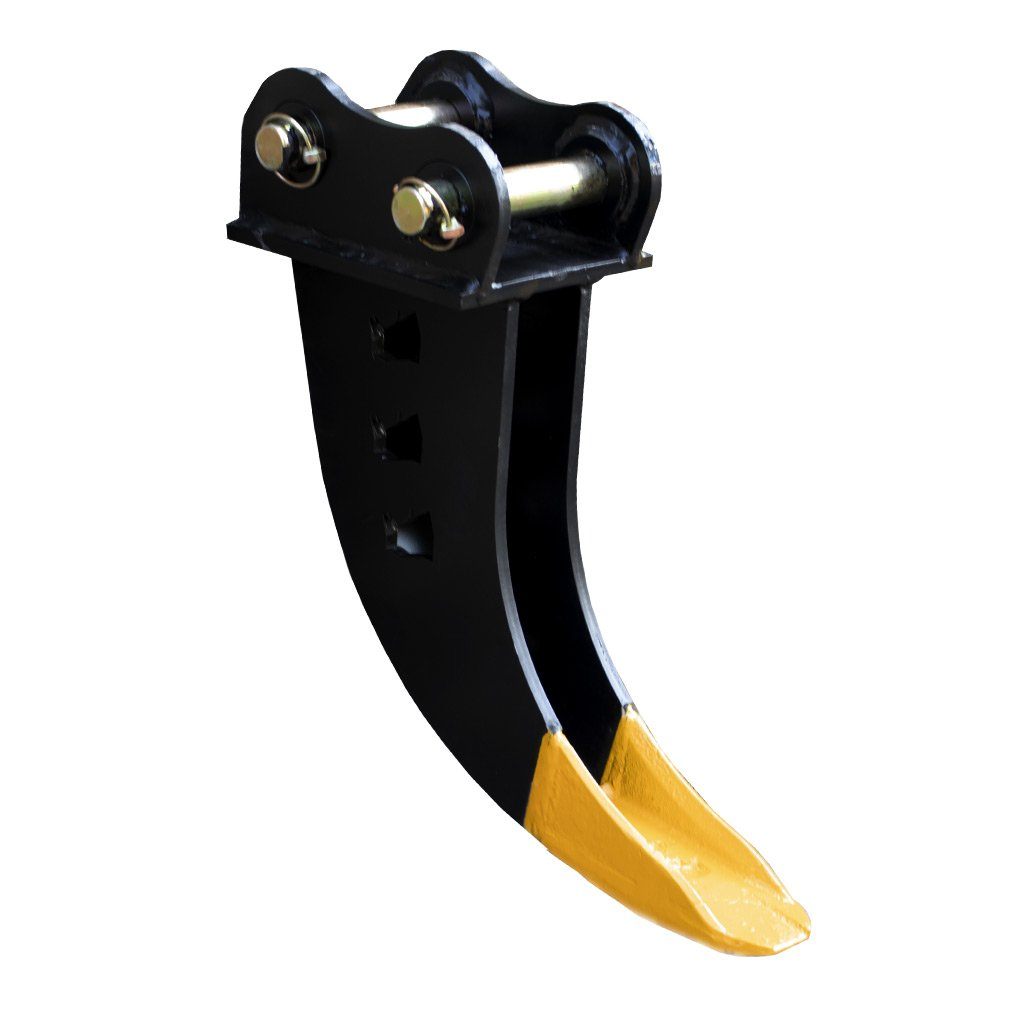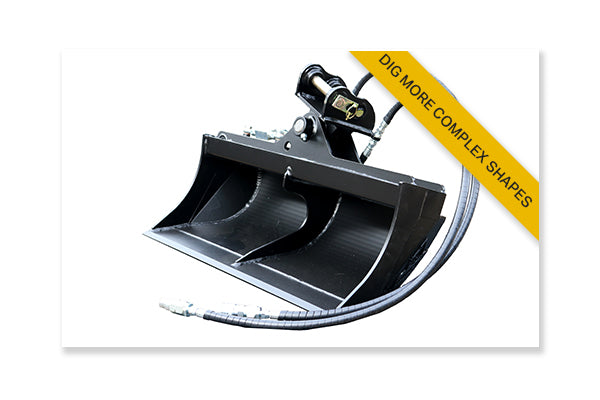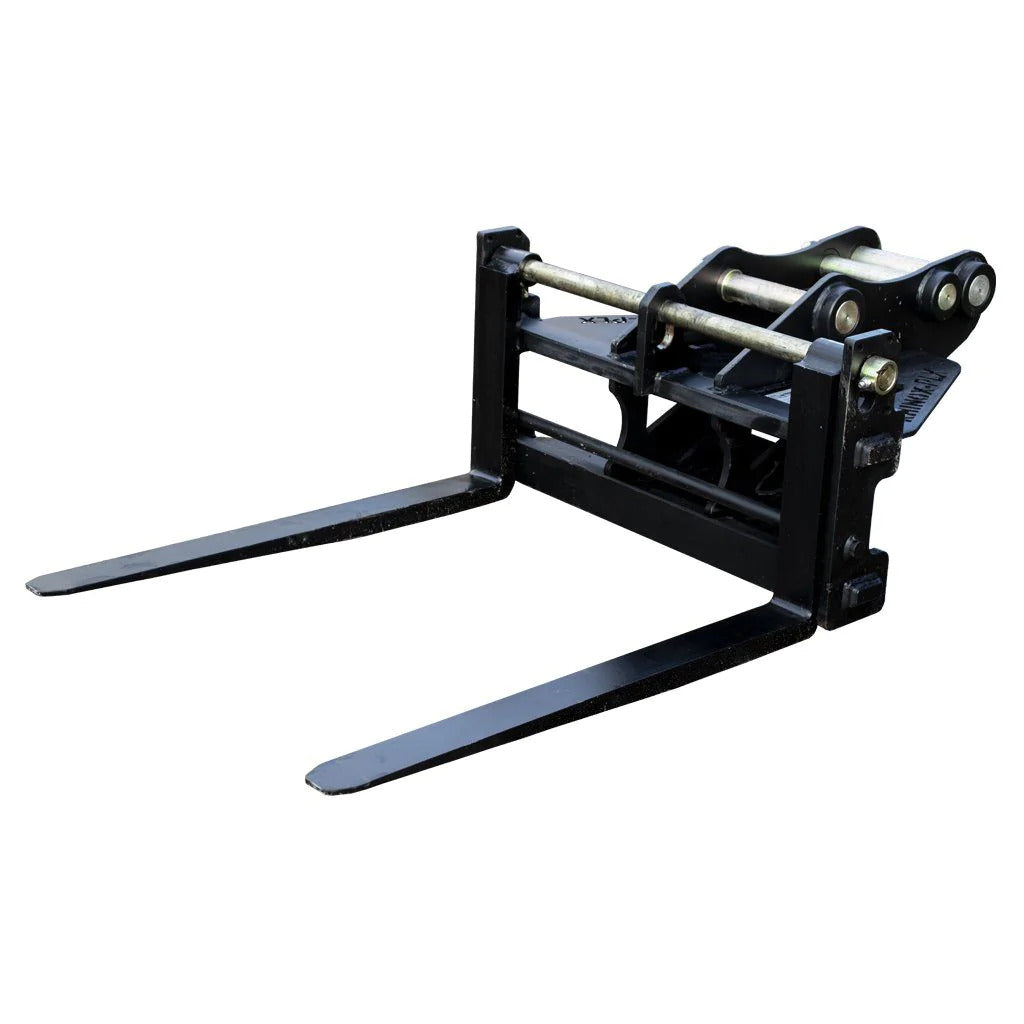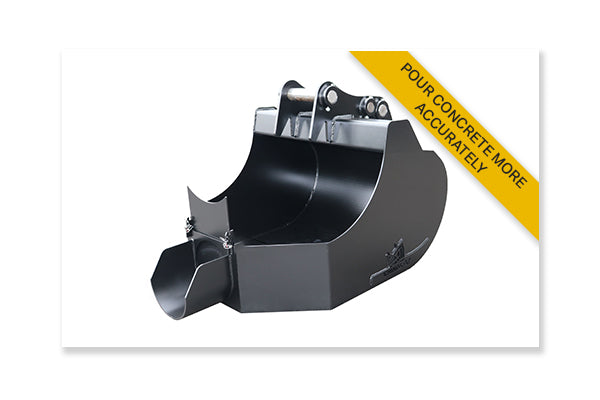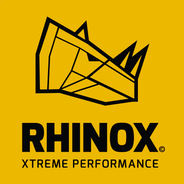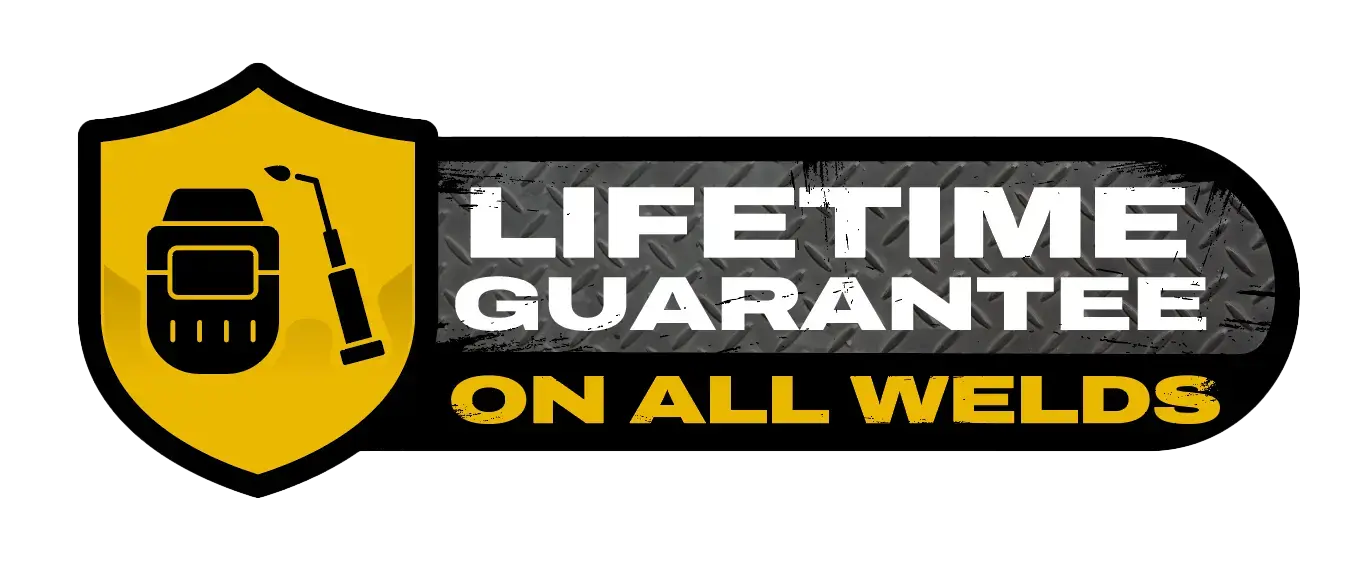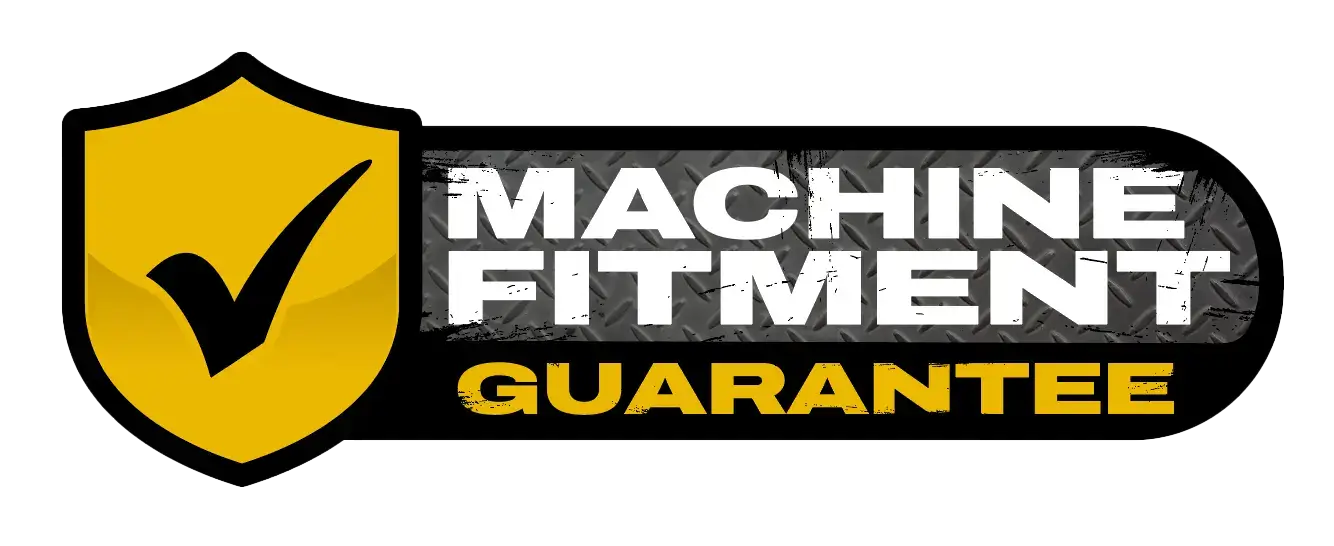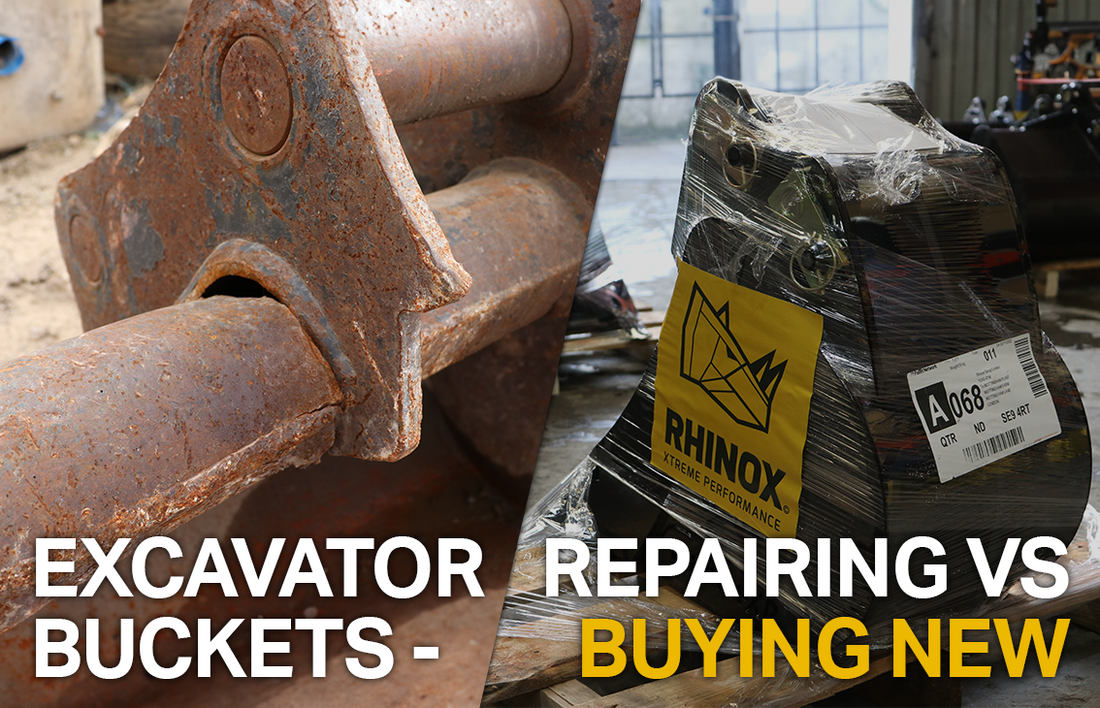
Should you repair or replace your digger bucket?
Excavators / Diggers are the workhorses of any construction, groundworks or landscaping site, and your buckets are essential tools for efficient material handling. But over time, your buckets will experience wear and tear, leaving you with a critical decision: Should I repair my bucket or buy a brand new replacement? In this article, we deep dive into the Repair vs Replace debate, providing insights to help you make an informed decision that maximises your excavator's efficiency and minimises your downtime. Keep reading to find out more.
Repair V Replace: 5 Points to Consider
1. Assess the Extent of Damage

Before making a decision, carefully assess the extent of the damage to your digger bucket. Small cracks or worn teeth may seem daunting, but they can often be repaired fairly easily. A worn, broken or twisted lip plate can be a much bigger job to replace and will need a more experienced welder to carry out effectively. If you have no experience with welding, we would recommend consulting with experts or somebody who knows how to weld, to determine whether the damage is repairable or if it goes beyond repair.
2. Cost Consideration - Weigh Up the Price Differences

Cost plays a crucial role in deciding whether to repair or replace your bucket. You must take into account multiple factors which will help decide whether it's cost effective to repair or not. Such as the material need to do the repairs, the labour costs and your potential downtime during the repairs. You will need to compare these costs with the price of a new bucket to gauge which option is more financially viable for you. You should consider the long-term implications as well, for example a bucket that has a whole in the shell will be heavily worn all over leading to recurring repairs in the future. This could end up being more costly than simply buying a new bucket to start with.
3. Evaluate Operational Downtime

Time is money and any downtime can significantly impact your jobs. You will have to consider the timeframe of repairing or replacing your buckets when making your decision. Minor repairs like small cracks or holes can be completed relatively quickly. If you're sending it off to be fixed this could be a couple of days, but if you have a welder as part of your team this could be fixed the same day. Major repairs like replacing an entire lip plate, will likely require much more time, especially when sending it away to be fixed. This could take numerous weeks, causing major delays in your job schedule. When ordering a new bucket, most manufacturers can deliver to you within 1-5 working days. In this cases, opting for a new bucket may prove beneficial as it minimises disruption and ensures you can get back to work as soon as possible.
4. Factor in Performance Enhancements

The digger bucket market is continually updating with new designs. Newer buckets are often manufactured with improved features and materials that enhance efficiency and productivity. Such as: Bucket Hooks for quicker and easier transporting of multiple buckets or improved wear protection to make your buckets last longer. You must take these improvements into consideration as they could hugely benefit your productivity and performance. If a new bucket offers significant performance enhancements, it might be an investment that is more beneficial to you in the long run.
5. Consider Availability and Compatibility

The final point you should consider is the availability of replacement parts or replacement buckets for your digger model. While repairing may seem like a good option, the availability of spare parts or suitable material and a skilled welder could influence your decision. Finding compatible replacement materials for your bucket can be a challenge especially if it's an old bucket. Where as when purchasing a new bucket you would have to make sure that you purchase the correct bucket for your machine and consider the lead time of it arriving. With some manufacturers, your bucket will be Made-to-order so it would be on a small lead time before you would receive it.
By considering these points carefully and weighing them up against your needs, time and budget, you should be able to make an informed decision that is best suited to you and your circumstances. If you are still unsure whether repairing or replacing your excavator bucket is the best option for you, we would recommend consulting a professional welder to help determine what they think is the best option for you. Learn more about the advantages and disadvantages of buying second hand digger buckets.
